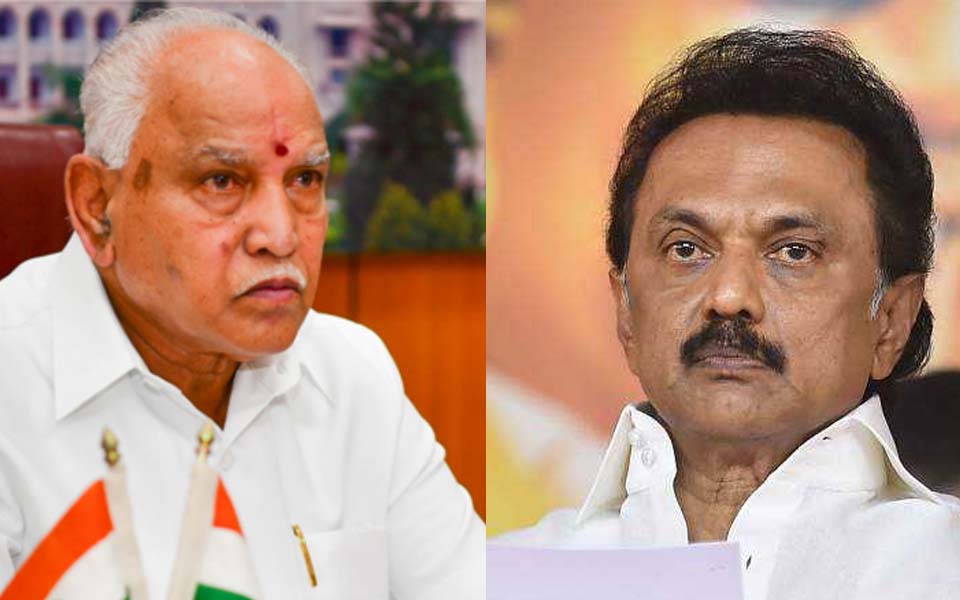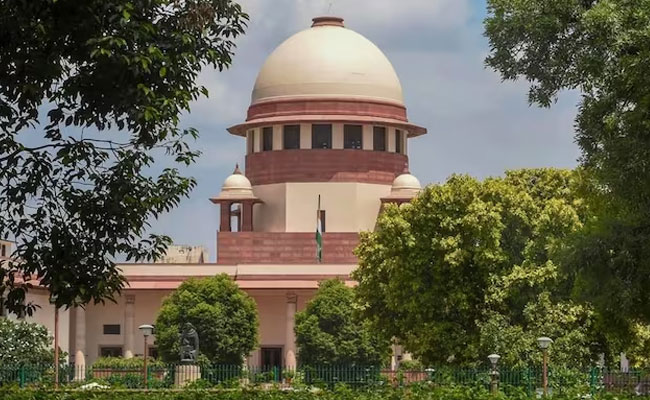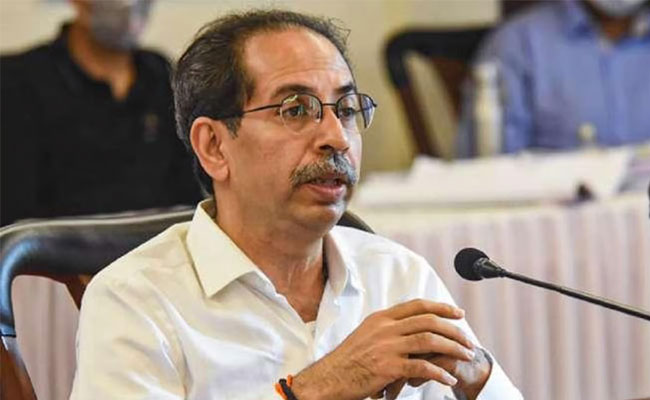Chennai, Jul 4: Tamil Nadu Chief Minister M K Stalin on Sunday urged his Karnataka counterpart B S Yediyurappa not to pursue the Mekedatu project, a day after the latter requested him to not oppose that initiative.
Rejecting Karnataka's stand that implementation of this project would not affect the interests of Tamil Nadu farmers, Stalin, in a letter to Yediyurappa, said that this view cannot be agreed upon and listed the reasons for it.
On Saturday, the Karnataka Chief Minister appealed to Stalin in a letter to not oppose the Mekedatu balancing reservoir-cum-drinking water project and also proposed bilateral meeting to clear apprehensions.
The Mekedatu project would "impound and divert" the uncontrolled water flow due to Tamil Nadu from Kabini sub- basin, the catchment area below Krishnarajasahara, and also from Simsha, Arkavathy and Suvernavathy sub-basins besides other small streams, Stalin said.
The uncontrolled water flow is one of the three components contributing to the annual quantum of water to be delivered by Karnataka to Tamil Nadu and this has been indentified in the Cauvery tribunal order as modified by the Supreme Court.
"Therefore, the view that the implementation of Mekedatu project would not affect the interests of Tamil Nadus farming community cannot be agreed to by us."
On Yediyurappa referring to TN initiatives like two hydropower projects, Stalin said comparison of Mekedatu project intended for storing of 67.16 TMC water, with the two hydro power projects of Tamil Nadu would not be correct.
There is no consumption of water in these two hydro power projects, with the available water being re-circulated by pumping to meet peak power demand.
Since there is no additional usage created, both the projects do not affect the availability of water for irrigation or drinking usage in Tamil Nadu.
"Hence, I wish to again emphasise that the comparison of such qualitatively different projects is not appropriate."
While water drawl from the river for drinking water usage in Bengaluru has been permitted by court, citing that as the reason for constructing such a major reservoir at Mekedatu, which is too far away from Bengaluru metropolitan area does not sound valid, he said.
When Karnataka already has adequate infrastructure for drawing drinking water to meet the demand of Bengaluru even now, the justification of the need for a reservoir with a storage capacity of 67.16 TMC to utilise 4.75 TMC as drinking water is not at all acceptable.
"This would definitely jeopardise the availability of water to Tamil Nadu."
Now that Tamil Nadu's share has been fixed by court, the optimal "utilisation of our share hinges only on efficient water use."
But unfortunately, the efficiency of irrigation in Cauvery system in Tamil Nadu could not be improved much since litigation was on for long.
Many old structures need modernisation and improvements to increase the water use efficiency. Unless these works are carried out, it would be impossible for us to meet the water demand at the rate of supply stipulated in the court order.
"I request you to consider the above facts and the sensitivity of these issues and strongly urge you not to pursue the Mekedatu project.
I wish to convey my good wishes to the people of Karnataka and earnestly hope that good co-operation and relationship would prevail between the two states."
Let the Truth be known. If you read VB and like VB, please be a VB Supporter and Help us deliver the Truth to one and all.
Kathmandu: Nepal has recently taken steps to ban the consumption and sale of spices produced by Everest and MDH, following similar actions by Singapore and Hong Kong. The move comes amidst concerns over the presence of harmful chemicals in these products, particularly ethylene oxide, a known cancer-causing pesticide.
According to reports from ANI, Nepal's Department of Food Technology and Quality Control has initiated testing on spices from these two Indian brands for ethylene oxide. Mohan Krishna Maharjan, spokesperson for Nepal's food technology department, confirmed the ban, stating that it extends to both import and sale of the affected spices.
Maharjan highlighted that testing is currently ongoing, and the ban will remain in effect until conclusive results are obtained. This development reflects a growing international scrutiny on the safety of MDH and Everest spices, with concerns also raised in New Zealand, the United States, and Australia.
In New Zealand, where ethylene oxide usage for food sterilization has been phased out, authorities are investigating the presence of this chemical in MDH and Everest spices. Meanwhile, in April, the Hong Kong food safety body banned four spice products from these brands, followed by Singapore's recall of Everest's Fish Curry Masala due to excessive levels of ethylene oxide.
The Food Safety and Standards Authority of India (FSSAI) has responded by ordering quality checks on products from MDH and Everest. Additionally, it has reached out to food safety regulators in Hong Kong and Singapore for further information.
MDH and Everest spices have long been household names in India and are exported to various countries, including those in the Middle East.





